
Corfu Old Town: A Journey Through Time
Corfu Old Town, a UNESCO World Heritage Site, is a captivating blend of history, culture, and architectural splendor. Nestled on the island of Corfu in Greece, this ancient neighborhood offers a unique mix of Venetian, French, and British influences, making it a must-visit destination for history buffs and culture enthusiasts alike. Wander through the narrow, winding streets and you'll discover a maze of charming alleyways, hidden squares, and historical monuments. The Old Fortress and the New Fortress stand as majestic sentinels, offering panoramic views of the town and the azure waters of the Ionian Sea. The Liston Promenade, inspired by the Rue de Rivoli in Paris, is perfect for a leisurely stroll or a coffee break at one of its elegant cafes. The vibrant Spianada Square is the largest square in Greece and serves as the beating heart of the Old Town. Here, you can enjoy local events, open-air concerts, and traditional festivals. Don't miss the chance to visit the Church of Saint Spyridon, the island's patron saint, whose relics are housed in a silver sarcophagus. The town is also home to several fascinating museums, such as the Archaeological Museum and the Museum of Asian Art, offering insights into the island's rich past. Corfu Old Town is not just about history; it's also a gastronomic paradise. Savor traditional Corfiot dishes at local tavernas, and don't forget to try the island's famous kumquat liqueur. Whether you're exploring its historical landmarks, indulging in its culinary delights, or simply soaking up the atmosphere, Corfu Old Town promises an unforgettable experience.
Local tips in Corfu Old Town
- Visit early in the morning or late in the afternoon to avoid crowds and enjoy a more peaceful experience.
- Wear comfortable shoes, as the cobblestone streets can be uneven and slippery.
- Try to catch a local festival or event at Spianada Square for an authentic cultural experience.
- Don't miss the local kumquat products, especially the liqueur, which is unique to Corfu.
- Take a guided tour to fully appreciate the rich history and stories behind the landmarks.
Corfu Old Town: A Journey Through Time
Corfu Old Town, a UNESCO World Heritage Site, is a captivating blend of history, culture, and architectural splendor. Nestled on the island of Corfu in Greece, this ancient neighborhood offers a unique mix of Venetian, French, and British influences, making it a must-visit destination for history buffs and culture enthusiasts alike. Wander through the narrow, winding streets and you'll discover a maze of charming alleyways, hidden squares, and historical monuments. The Old Fortress and the New Fortress stand as majestic sentinels, offering panoramic views of the town and the azure waters of the Ionian Sea. The Liston Promenade, inspired by the Rue de Rivoli in Paris, is perfect for a leisurely stroll or a coffee break at one of its elegant cafes. The vibrant Spianada Square is the largest square in Greece and serves as the beating heart of the Old Town. Here, you can enjoy local events, open-air concerts, and traditional festivals. Don't miss the chance to visit the Church of Saint Spyridon, the island's patron saint, whose relics are housed in a silver sarcophagus. The town is also home to several fascinating museums, such as the Archaeological Museum and the Museum of Asian Art, offering insights into the island's rich past. Corfu Old Town is not just about history; it's also a gastronomic paradise. Savor traditional Corfiot dishes at local tavernas, and don't forget to try the island's famous kumquat liqueur. Whether you're exploring its historical landmarks, indulging in its culinary delights, or simply soaking up the atmosphere, Corfu Old Town promises an unforgettable experience.
Iconic landmarks you can’t miss
Old castle in Corfu
Explore Corfu's iconic Old Fortress: a historic Venetian stronghold with stunning views, rich history, and captivating cultural events.
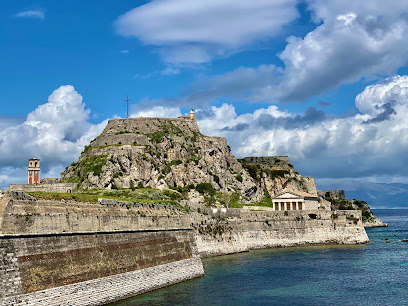
Maitland Monument
Explore the Maitland Monument in Corfu, a neoclassical tribute to British influence and a landmark steeped in history.
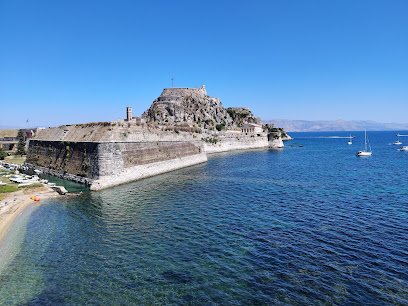
Corfu Byzantine Collection
Explore Byzantine art and history within Corfu's Old Fortress, showcasing mosaics, frescoes, and sculptures from Medieval Kerkyra.
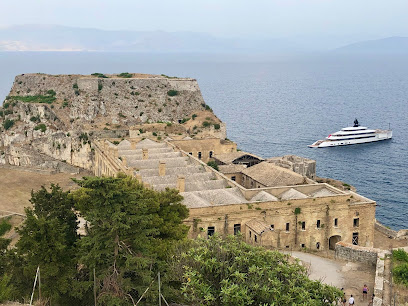
Old Fortress Lighthouse
Explore Corfu's maritime history at the Old Fortress Lighthouse, offering stunning panoramic views and a glimpse into the island's Venetian past.
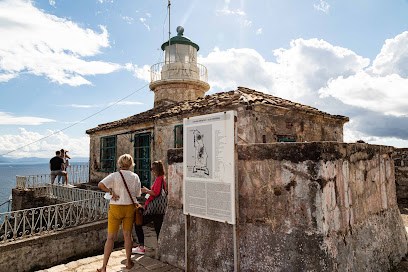
Savorgnan Bastion
Explore the Savorgnan Bastion in Corfu's Old Fortress: a Venetian-era marvel offering panoramic views and a glimpse into the island's rich history.
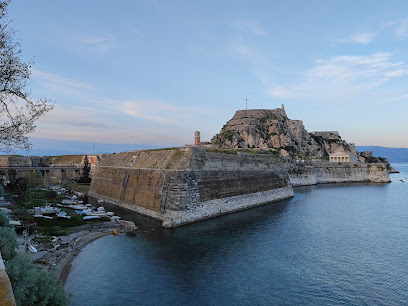
Kampana Fort
Explore Kampana Fort in Corfu's Old Fortress: a historic landmark with stunning views and Venetian ruins.
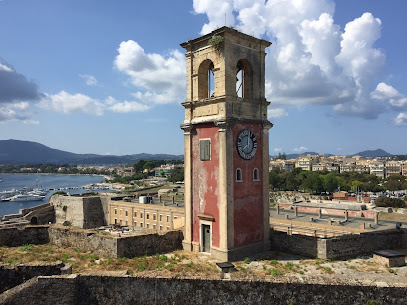
Versiada Circular Tower
Explore the Versiada Circular Tower in Corfu's Old Fortress for panoramic Ionian Sea views and a glimpse into the island's Venetian past.
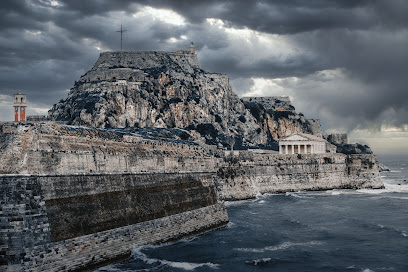
Venetian Prisons
Explore the haunting Venetian Prisons within Corfu's Old Fortress, a testament to the island's rich and turbulent history.
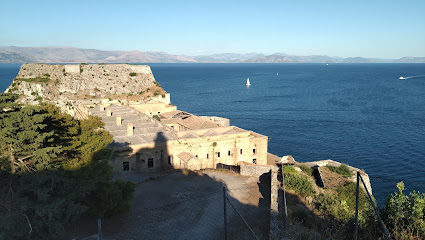
Statue of Konstantinos Theotokis
A tribute to the Corfiot novelist Konstantinos Theotokis, nestled in the serene Boschetto Garden of Corfu Town.
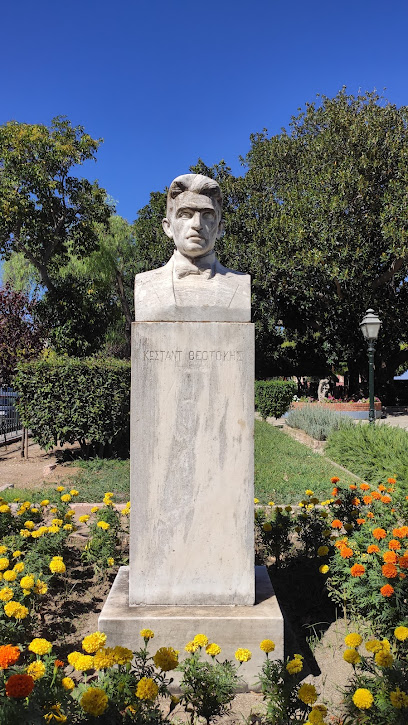
Tower of Saint Angel
Explore Corfu's Venetian past at the Tower of Saint Angel, a historic landmark with stunning Ionian Sea views.
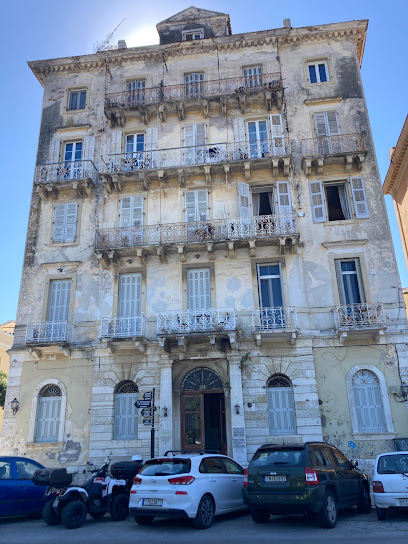
Unmissable attractions to see
Casa Parlante Museum
Explore the immersive Casa Parlante Museum in Corfu, where history is brought to life through engaging exhibits and captivating storytelling.
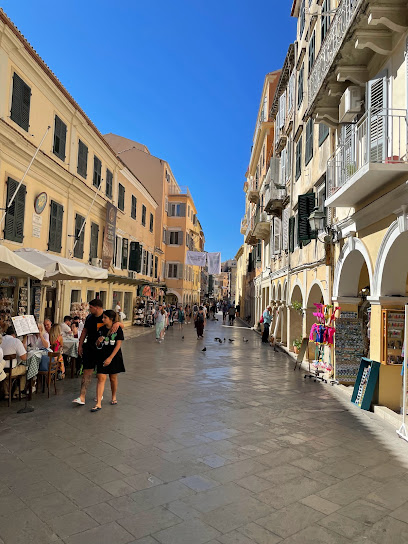
Maitland Monument
Discover the historical significance of Maitland Monument, a cultural landmark in the heart of Corfu, steeped in rich history and local charm.
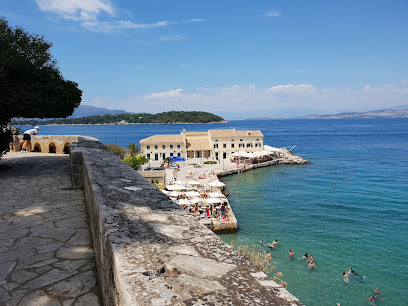
Liston - Eleftherias Street
Experience the enchanting Liston on Eleftherias Street, a cultural gem in Corfu, where Venetian architecture meets vibrant local life and delightful cuisine.
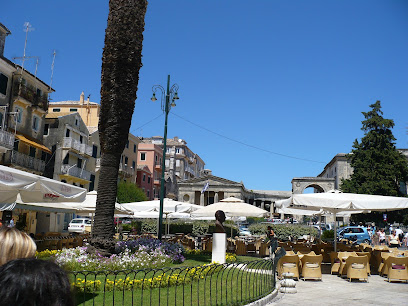
Corfu Kerkyra
Explore Corfu Kerkyra, a historical gem of Greece offering breathtaking views, rich culture, and vibrant local life for an unforgettable travel experience.
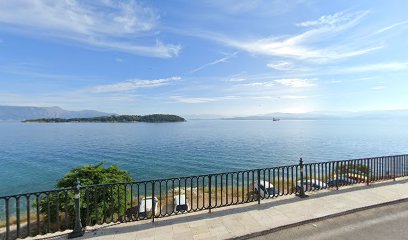
Essential places to dine
Avli Restaurant Corfu
Discover authentic Greek cuisine at Avli Restaurant Corfu – where every meal is a celebration of Mediterranean flavors.
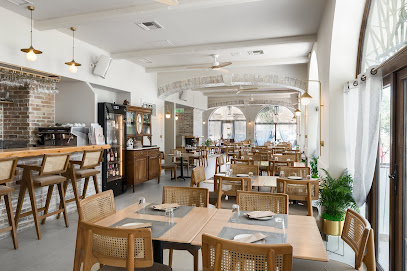
Bellissimo
Experience the best of Greek and Italian cuisine at Bellissimo in Corfu—where every meal tells a story.
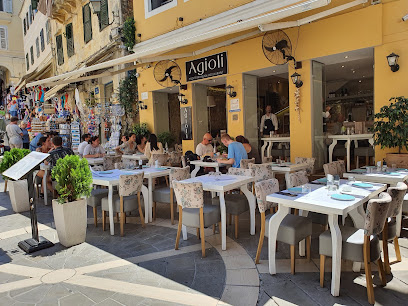
Corfu Sailing Restaurant
Experience exquisite Mediterranean cuisine at Corfu Sailing Restaurant – where fresh seafood meets breathtaking views in Corfu Town.
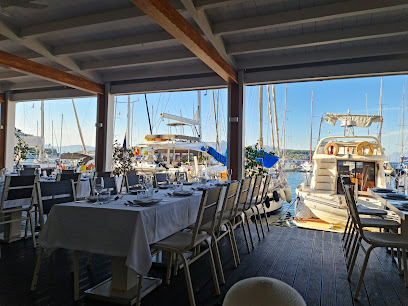
Restaurant Anthos
Experience exquisite seafood dining at Restaurant Anthos in Corfu - where Mediterranean flavors meet elegance.
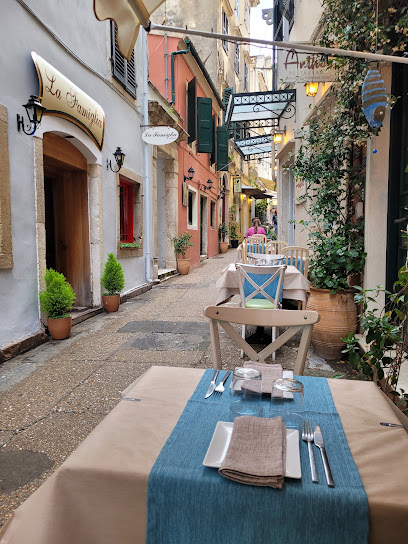
Bougainvillea
Discover the flavors of Greece at Bougainvillea in Corfu - where tradition meets taste in every dish.
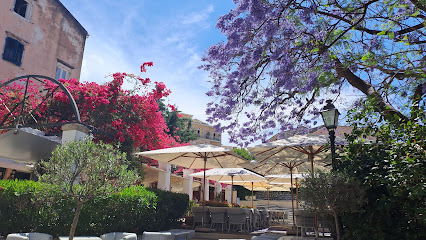
Venetian Well
Discover exquisite Mediterranean cuisine in an enchanting setting at Venetian Well in Corfu - where every meal tells a story.
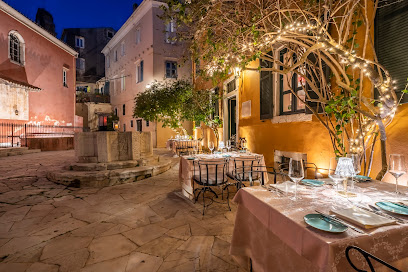
Old Times
Experience authentic Greek cuisine at Old Times in Corfu - where tradition meets flavor in every dish.
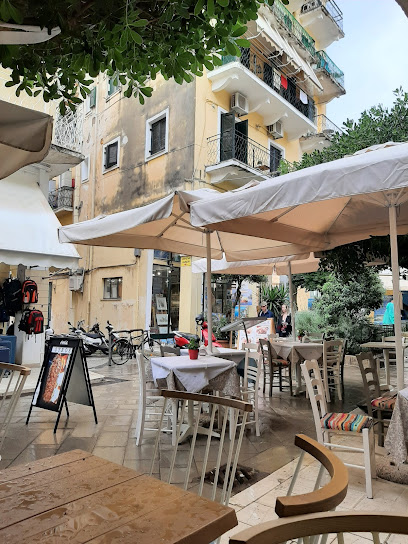
Pomo D'Oro Corfu
Discover exquisite Greek cuisine at Pomo D'Oro Corfu – where tradition meets innovation in a charming setting.
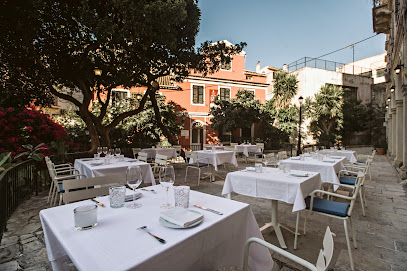
Del Sole
Discover Del Sole in Corfu: where authentic Italian cuisine meets family-friendly hospitality in an enchanting atmosphere.
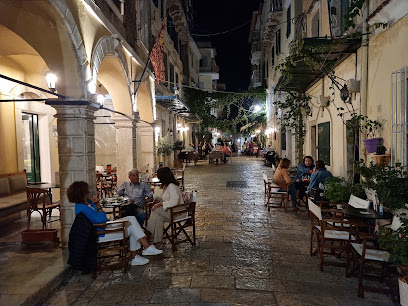
La Cucina - Oenos-Crudo
Experience authentic Italian cuisine with a twist at La Cucina - Oenos-Crudo in Corfu; where tradition meets innovation.
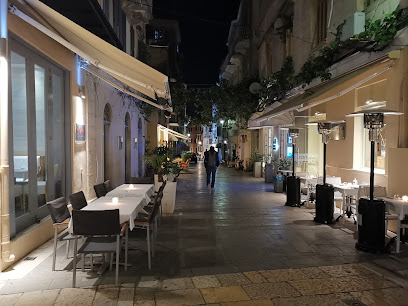
Markets, malls and hidden boutiques
Barbara Anti-Kairoi
Explore Barbara Anti-Kairoi in Corfu for exquisite fashion accessories and creative scrapbooking supplies, showcasing the best of Greek craftsmanship.
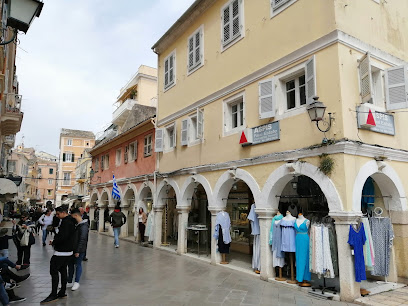
MUSES CORFU
Explore Muses Corfu: A Chic Fashion Accessories Store Offering Unique Styles and Timeless Elegance in the Heart of Corfu.
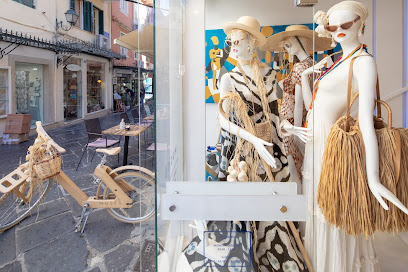
Mezzo Mezzo
Discover the latest trends and unique fashion pieces at Mezzo Mezzo, a stylish women's clothing and accessories store in the heart of Corfu.
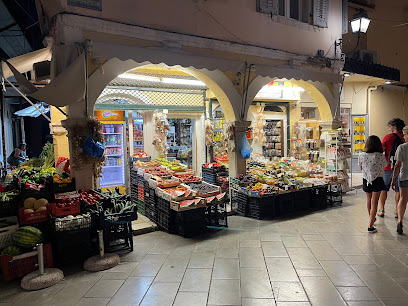
Corfu Vintage Shop
Explore the enchanting Corfu Vintage Shop, where history comes alive through a curated collection of unique antiques and vintage treasures.
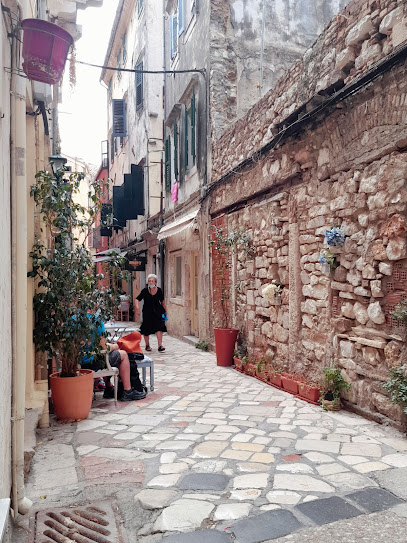
Must b.
Explore chic fashion and unique styles at Must b., a premier boutique in Corfu, Greece, offering a delightful shopping experience for all fashion lovers.
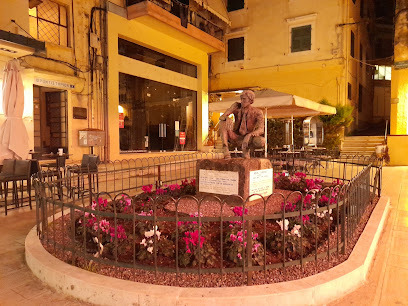
Levantes Boutique
Explore Levantes Boutique in Corfu for unique fashion pieces that reflect the island's vibrant culture and style.
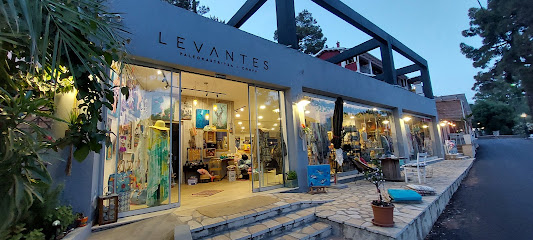
Hashtag Boutique
Discover stylish apparel and accessories at Hashtag Boutique, a hallmark of Corfu's vibrant fashion scene, perfect for tourists and locals alike.
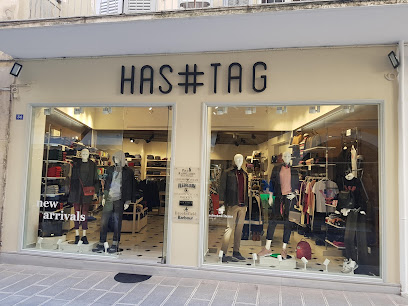
Handmade by Armeni Antonia
Explore the unique craftsmanship and artistic beauty at Handmade by Armeni Antonia, Corfu's gem for handmade treasures and local artistry.
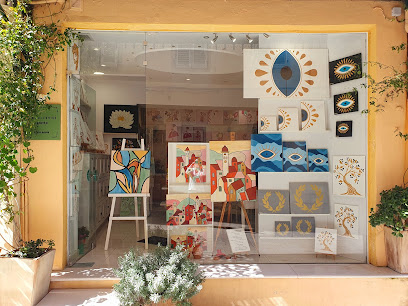
Ex Oriente Lux
Discover unique clothing and handcrafted jewelry in Corfu at Ex Oriente Lux, where quality meets creativity in every piece.
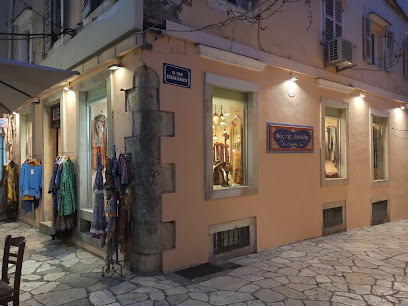
Art Forum
Discover unique and artistic home goods at Art Forum in Corfu, where every piece tells a story and adds charm to your space.
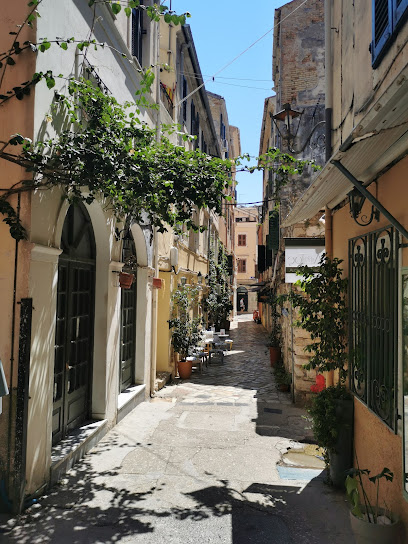
Essential bars & hidden hideouts
Bristol Café
Experience the vibrant atmosphere of Bristol Café in Corfu, where masterfully crafted cocktails meet an inviting ambiance for unforgettable moments.
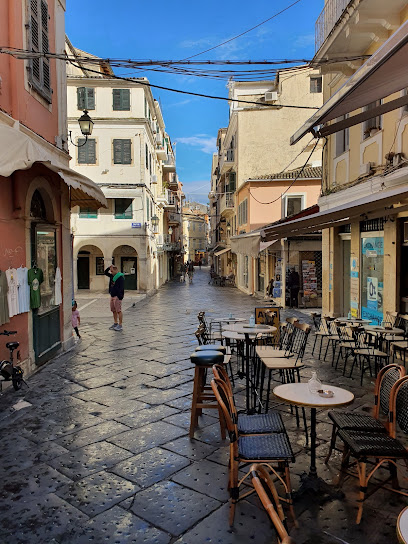
Arthaus Cafe Wine Bar
Experience the perfect blend of art and fine wine at Arthaus Cafe Wine Bar in Corfu, where every sip is paired with creativity.
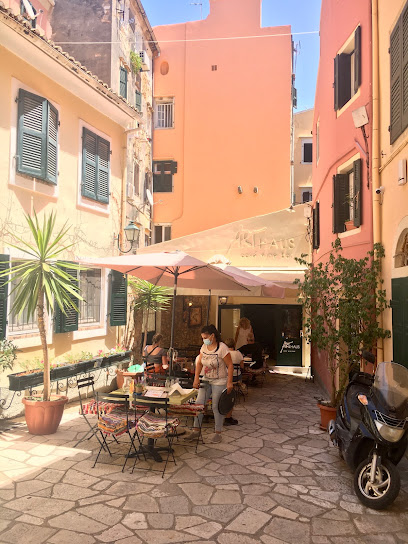
Dell'Acque - Music & more
Experience the lively atmosphere of Dell'Acque in Corfu, where music, cocktails, and cuisine unite for an unforgettable night out.
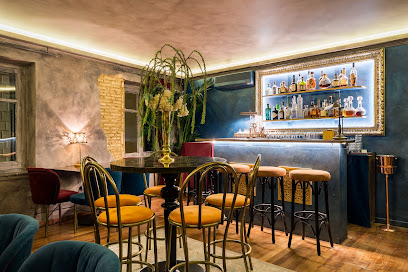
GREC
Discover GREC, the stylish cocktail bar in Corfu, where vibrant ambiance meets exquisite mixology, perfect for an unforgettable night out.
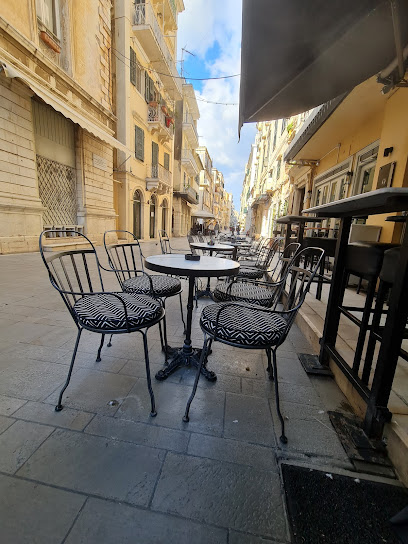
Eraldicon
Discover the vibrant atmosphere of Eraldicon, a charming brewpub in Corfu offering local brews and delicious fare at affordable prices.
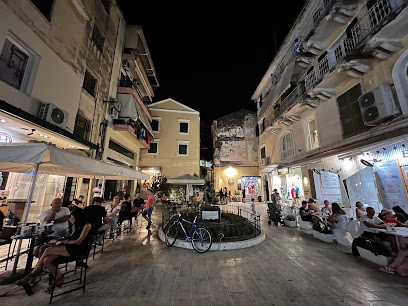
Cale Larga
Discover the lively ambiance of Cale Larga, a must-visit bar and coffee shop in Corfu offering delightful drinks and snacks in a vibrant setting.
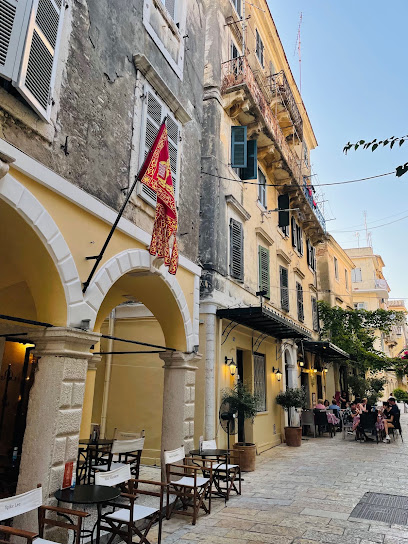
Strada
Discover the vibrant nightlife of Corfu at Strada, where exquisite cocktails and a lively atmosphere await you.
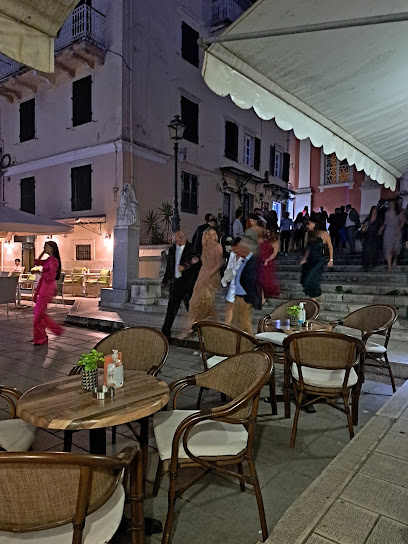
Pecorino Wine Bar
Discover the charm of Pecorino Wine Bar in Corfu, where fine wines and local delicacies create a delightful dining experience.
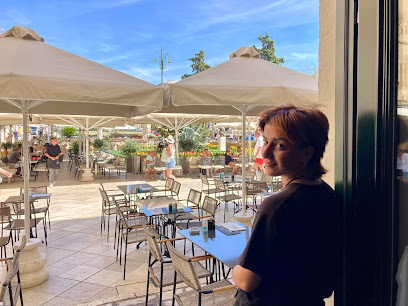
La Boheme
Discover La Boheme, a vibrant bar in Corfu offering a delightful atmosphere, exquisite drinks, and a taste of local culture.
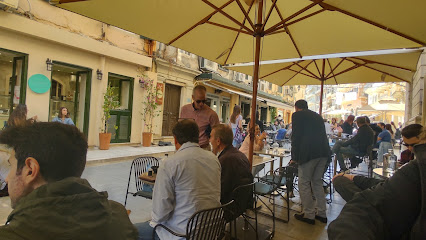
Brofessor Beans & Spirits
Experience the perfect blend of coffee and cocktails at Brofessor Beans & Spirits, Corfu's trendy bar for relaxation and socializing.
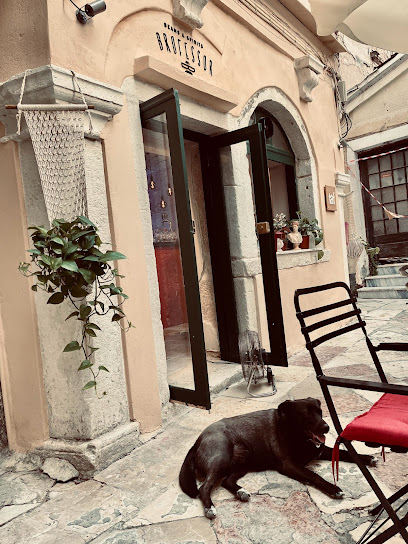
Local Phrases
-
- HelloΓεια σας
[Ya sas] - GoodbyeΑντίο
[Adio] - YesΝαι
[Ne] - NoΌχι
[Ohi] - Please/You're welcomeΠαρακαλώ
[Parakalo] - Thank youΕυχαριστώ
[Efharisto] - Excuse me/SorryΣυγνώμη
[Signomi] - How are you?Τι κάνετε;
[Ti kanete?] - Fine. And you?Καλά. Εσείς;
[Kala. Esis?] - Do you speak English?Μιλάτε αγγλικά;
[Milate anglika?] - I don't understandΔεν καταλαβαίνω
[Den katalaveno]
- HelloΓεια σας
-
- I'd like to see the menu, pleaseΘα ήθελα να δω το μενού, παρακαλώ
[Tha ithela na do to menou, parakalo] - I don't eat meatΔεν τρώω κρέας
[Den troo kreas] - Cheers!ΥΓΕΙΑ!
[Yia] - I would like to pay, pleaseΘα ήθελα να πληρώσω, παρακαλώ
[Tha ithela na plirosi, parakalo]
- I'd like to see the menu, pleaseΘα ήθελα να δω το μενού, παρακαλώ
-
- Help!Βοήθεια!
[Voithia] - Go away!Φύγε!
[Fiye] - Call the Police!Καλέστε την Αστυνομία!
[Kaleste tin Astinomia] - Call a doctor!Καλέστε για γιατρό!
[Kaleste ya giatro] - I'm lostΈχω χαθεί
[Eho hathi] - I'm illΕίμαι άρρωστος
[Eimai arrostos]
- Help!Βοήθεια!
-
- I'd like to buy...Θα ήθελα να αγοράσω...
[Tha ithela na agorasoo...] - I'm just lookingΑπλά κοιτάω
[Apla kito] - How much is it?Πόσο κοστίζει;
[Poso kostizi?] - That's too expensiveΑυτό είναι πολύ ακριβό
[Afto ine poli akribo] - Can you lower the price?Μπορείτε να μειώσετε την τιμή;
[Borite na meiosete tin timi?]
- I'd like to buy...Θα ήθελα να αγοράσω...
-
- What time is it?Τι ώρα είναι;
[Ti ora ine?] - It's one o'clockΕίναι μία η ώρα
[Ine mia i ora] - Half past (10)Μισή (10)
[Misi (10)] - MorningΠρωί
[Proi] - AfternoonΑπόγευμα
[Apoyema] - EveningΒράδυ
[Vradi] - YesterdayΧθες
[Hthes] - TodayΣήμερα
[Simera] - TomorrowΑύριο
[Avrio] - 1Ένα
[Ena] - 2Δύο
[Dio] - 3Τρία
[Tria] - 4Τέσσερα
[Tessera] - 5Πέντε
[Pente] - 6Έξι
[Exi] - 7Εφτά
[Efta] - 8Οκτώ
[Okto] - 9Εννιά
[Ennia] - 10Δέκα
[Deka]
- What time is it?Τι ώρα είναι;
-
- Where's a/the...?Πού είναι ένα/το...;
[Pou ine ena/to...?] - What's the address?Ποια είναι η διεύθυνση;
[Pia ine i diefthinsi?] - Can you show me (on the map)?Μπορείτε να μου δείξετε (στο χάρτη);
[Borite na mou dixete (sto charti)?] - When's the next (bus)?Πότε είναι το επόμενο (λεωφορείο);
[Pote ine to epomeno (leoforeio)?] - A ticket (to ....)Ένα εισιτήριο (για το...);
[Ena isitirio (ya to...)?]
- Where's a/the...?Πού είναι ένα/το...;
History of Corfu Old Town
-
Corfu Old Town's history begins in antiquity, with the island of Corfu being settled by the Greeks in the 8th century BC. The ancient city of Corcyra became a significant trading hub due to its strategic location in the Ionian Sea. Archaeological remains, such as temples and fortifications, highlight the town's importance in ancient Greek culture and commerce.
-
After falling under Roman control in the 2nd century BC, Corfu Old Town continued to flourish. The Romans valued the island for its strategic position and its natural harbor. Following the division of the Roman Empire, the town became part of the Byzantine Empire, where it served as a vital outpost against invasions from the north and continued to develop its rich cultural life.
-
In the late 14th century, Corfu fell under Venetian rule, which lasted for over four centuries. The Venetians fortified Corfu Old Town, constructing impressive fortresses that still stand today, including the Old Fortress and the New Fortress. This era transformed the town into a center of trade and culture, blending Venetian, Greek, and Italian influences, evident in its architecture and urban layout.
-
Following the fall of the Republic of Venice in 1797, Corfu Old Town experienced a brief period under French control, which introduced new administrative reforms and educational advancements. However, by 1815, the British seized control, leading to significant infrastructural improvements, including the establishment of the British High Commissioner's residence and the introduction of the first modern sewage system.
-
During World War II, Corfu Old Town suffered occupation by Axis forces, which led to considerable damage. Post-war reconstruction efforts focused on restoring the town's historical sites and enhancing its cultural heritage, contributing to its designation as a UNESCO World Heritage Site in 2007, recognizing its architectural significance and historical importance.
-
In recent decades, Corfu Old Town has seen a renaissance in cultural activities and tourism. The preservation of its historical sites, along with the revival of traditional festivals and local crafts, has reinvigorated community life and attracted visitors from around the globe. The town's vibrant atmosphere, characterized by its narrow alleys, bustling squares, and rich culinary traditions, reflects its diverse historical influences.
Corfu Old Town Essentials
-
Corfu Old Town is easily accessible from other parts of the island. If you are coming from Corfu International Airport, you can take a taxi, which typically takes about 15 minutes. Alternatively, local buses operate regularly from the airport to the Old Town. If you are staying in other neighborhoods, such as Kanoni or Dassia, local buses also connect these areas to the Old Town. The journey from Kanoni takes around 20 minutes, while from Dassia, it can take approximately 30-40 minutes.
-
Corfu Old Town is a pedestrian-friendly area, making it easy to explore on foot. Most attractions, shops, and restaurants are within walking distance. However, if you prefer to use public transport, local buses are available to take you to nearby attractions outside the Old Town. Bicycles can also be rented from various shops, offering a pleasant way to explore the coastal areas. Note that parking can be limited, so it's advisable to use public transport or walk whenever possible.
-
Corfu Old Town is generally safe for tourists, with low crime rates. However, standard precautions should be taken. Pickpocketing can occur in crowded areas, especially during peak tourist season. It is advisable to keep your belongings secure and remain vigilant in busy markets or public transport. Areas to be cautious about at night include darker, less populated streets off the main tourist paths.
-
In case of an emergency, dial 112 for immediate assistance. This number connects you to police, fire, and medical services. The local hospital is located just outside the Old Town, and there are several pharmacies throughout the area for minor health issues. It is advisable to have travel insurance that covers medical emergencies.
-
Fashion: Do dress modestly, especially when visiting churches. Avoid beachwear outside of the beach areas. Religion: Do respect local customs; it’s customary to greet locals with a smile. Public Transport: Do be courteous and give up your seat to elderly passengers. Don’t eat or drink on public transport. Greetings: Do greet with a friendly 'Kalimera' (Good morning). Eating & Drinking: Do try local specialties like pastitsada and kumquat liqueur. Don’t engage in loud or disruptive behavior in restaurants or cafes.
-
To experience Corfu Old Town like a local, visit the vibrant local markets, especially the Old Market (Kapodistrias Square) for fresh produce and local delicacies. Engage with shop owners; they often have fascinating stories to share. Consider exploring the less touristy side streets, where you can find charming cafes and artisan shops. Don't miss the chance to enjoy a sunset at the Old Fortress, offering stunning views over the sea and the town.
Nearby Cities to Corfu Old Town
-
Things To Do in Saranda
-
Things To Do in Gjirokastër
-
Things To Do in Tepelenë
-
Things To Do in Ioannina
-
Things To Do in Vlorë
-
Things To Do in Berat
-
Things To Do in Patos
-
Things To Do in Meteora
-
Things To Do in Pogradec
-
Things To Do in Kavajë
-
Things To Do in Tirana
-
Things To Do in Durres
-
Things To Do in Krujë
-
Things To Do in Larissa
-
Things To Do in Patras












